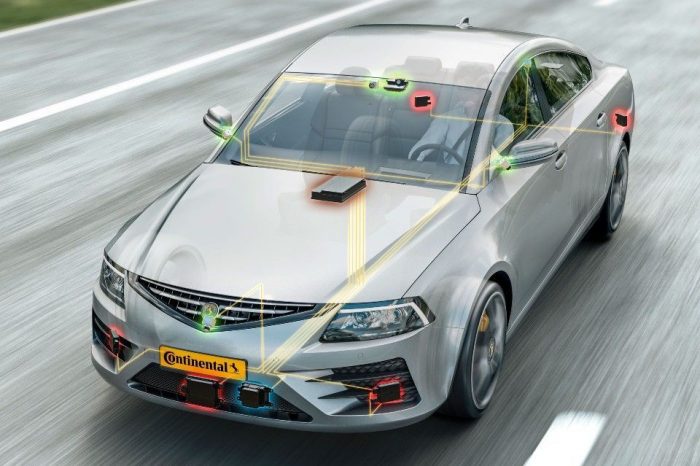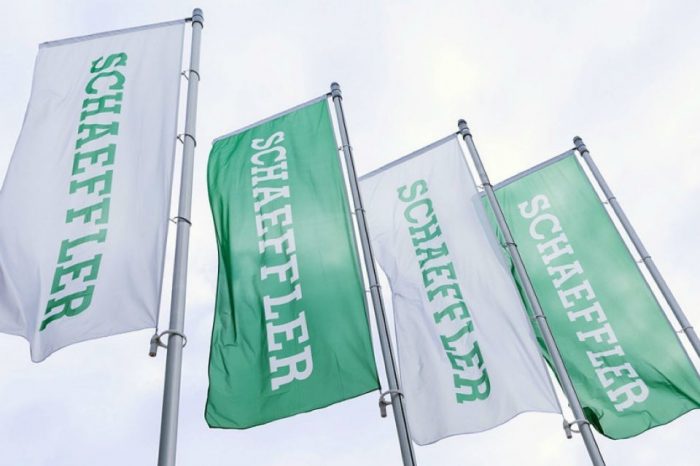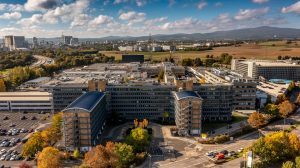Sorin Poteras, Schaeffler Romania: “We started a new development phase this year”

Schaeffler Romania has had a solid, constant growth and development since the Group founded the Romanian site in 2002, says Sorin Poteras, director of the company.
“The initial project for the plant, inaugurated in 2004, consisted of three production halls and a developed area of 55,000 sqm,” he tells Automotive Today. “Those expectations were exceeded by far and the plant today has six production halls covering a built area of about 100,000 square meters. This construction phase was finished in 2008, with expansions through the Training Centre and Engineering Centre in 2011, respectively 2012. The last years can be described as a huge step forward in terms of development of technological and systems know-how. This happened alongside an enlargement of the product portfolio and production lines. In the last three years, we hired 1,000 more people and are now operating with more than 4,800 employees in Brasov.”
Schaeffler Romania produces components for the engines and transmissions of millions of cars worldwide. For example, the RSTO tappets are going into 20 million engines every year and the company’s variable camshaft timers are used in the Ford Eco Boost 1L engine and also in engines of Ferrari, VW, Audi, BMW, Hyunday, Volvo and GM. Also, the tripod rollers from Schaeffler Romania are equipping cars that include Bugatti and the 918 Porsche Spyder.
The company is also working on R&D solutions in order to make a contribution to all forms of future mobility. “We concentrate on four areas: environmental-friendly drives, urban mobility, interurban mobility, and the energy chain,” says Poteras. “Further thinking, lateral thinking and rethinking allow us to identify key trends at an early stage. We develop innovative products and systems, define new technology standards, and make them ready for volume production. In this regard we also focus on digitalization. We believe that within the next few years, all vehicles and machines will be connected with each other via the Internet of Things.
“We are quite proud of our R&D engineers in Romania; they have registered more than 150 patent applications in the last ten years. We are very eager to see all these ideas in the new products launched in serial production.”
The R&D department started in 2004 with a team of ten engineers, while the location in the plant was under construction.
“The department has experienced a steady development, reaching a team of 90 engineers in 2012, which has led to the strengthening of R&D activities under the umbrella of the Engineering Centre and the inauguration of the centre built for this purpose,” Poteras explains. “This has been an important step in the company’s development strategy, through value added to production processes and, last but not least, has meant strengthening the R&D shared service in the Schaeffler Group worldwide. The Engineer Centre currently operates with over 200 engineers and has competences in areas such as Product Design, Technical Calculation, Technical Analysis, CAD Methods, CAE Software Programming, Design and Development of New Concepts.”
The next step in development for Schaeffler Romania was the foundation stone for the new Testing and Validation Centre, which adds a new activity (product validation) to the company’s R&D portfolio.
“We would like to continue building and consolidating our know-how, teams and activities,” says Poteras. “The new Testing Centre is planned to have an office floor designed after the ‘New Work’ concept, the first pilot project for the Schaeffler Group outside Germany. Therefore, we will have a very strong and modern R&D centre in Brasov.”
Poteras goes on to say that Schaeffler Romania is working on a wide range of technologies for the various drive concepts, markets, and regions.
“In the automotive division, we have four growth drivers: electrification, autonomous driving, connectivity and added value of automotive suppliers,” he says. “While doing our part to shape and align to the future trends and solutions, we maintain our primary target of keeping our status as favourite supplier for our customers. Our strategy is not focused on local markets, but on a global scale. However, although we operate as a global supplier, with the products we manufacture in Romania delivered to customers worldwide, we also have customers close-by, in the local market, like Dacia Pitesti and Ford Craiova.”
Schaeffler Romania started a new development phase this year, which includes a new production hall, the mentioned Testing Centre and an additional logistics facility. The company expects to exceed 5,000 employees in 2019, but it faces the problem of workforce shortage.
“There are quite a few companies that wanted or want to expand, but due to lack of workforce they must postpone their development or look for other areas for their investment,” says Poteras. “I believe it is essential for the administrative, political and business environment to invest in people and their development in order to support a strong and motivated workforce: from the education system to specific training and retraining programmes.”
In his opinion, Romania needs strategies to motivate skilled and productive people through the entire structure and system, to keep them in the Romanian work environment.
“The training, attraction and retention of the workforce must be treated with the utmost seriousness and resources,” says Poteras. “An example of good practice in this case is the German Kronstadt Professional School project where, in partnership with local authorities, the Ministry of Education and the economic environment, the foundation of a successful national project was laid. This project does not only meet the economic requirements of the moment, but also contributes to a better future for the social and economic environment in which we operate.”
Schaeffler Romania is looking for R&D specialists in areas that range from mechanical and electrical design to technical computation, testing, software programmers, technical analysis and many more.
“As we have a strong production in Brasov, our R&D role is also important for product optimization, assuring the right product knowledge and the needed documentation,” says Poteras.
He goes on to say that the entry level for engineers can start from a fresh graduate, as the company has different training programmes, and end as a specialist in different areas.
“Our educational programme portfolio is quite complex and offers guidance, support and knowledge to all those who are interested to find out what fits them best and then train and start a career,” Poteras explains. “Next to our Trainee programme – that offers university graduates the chance to train for a year, as employees, within the company, before starting their work on the position that fits them best – we also have internships, degree collaborations, scholarships, workshops and three Masters Programmes, developed with our direct involvement with the Transylvania University: ‘Virtual Engineering in Automotive Design’, ‘Engineering of Advanced Manufacturing Processes’ and ‘Practical Integrated Methods for Propulsion Systems Engineering’.”
More than 400 students take park in Schaeffler’s educational programmes in Romania every year.
The Schaeffler Group is an automotive and industrial supplier. The technology company generated sales of almost 14 billion Euro in 2017. With more than 92,000 employees, Schaeffler owns manufacturing locations, research and development facilities, and sales companies in 50 countries.
Since 2002, Schaeffler Romania has been manufacturing in Brasov components for the automotive industry and bearings for industrial applications.


















